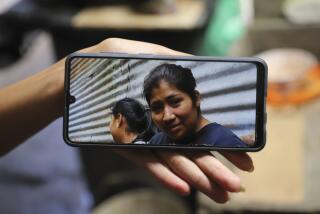A Mixed Signal to El Salvador
Congress may think it sent a strong signal to the government of El Salvador by coming close to cutting U.S. military aid to that country. We think it wimped out.
The congressional majority that voted for an amendment to halve the $85 million that El Salvador gets this year in military aid did the right thing. By that vote, Congress displayed the frustration most Americans feel over the lack of progress--much less justice--in the case of six Jesuit priests massacred by soldiers last year.
But then President Bush threatened to veto the foreeign aid measure in spite of the fact that the Salvadoran aid amendment was attached to an allocation of $720 million in emergency assistance to Nicaragua and Panama. So Congress, not wanting to penalize those two desperate countries, nullified the El Salvador amendment, and the signals got mixed.
The thugs in the Salvadoran military don’t understand the subtleties of mixed signals. A 2x4 upside the head is more their style, and until the United States is willing to use one, the generals in San Salvador are not likely to change their brutish ways.
The message San Salvador must get is simple. The taxpayers of the United States won’t support an army that routinely murders innocent civilians. Period. The only way to get that message across is to sharply cut back on military aid or to simply stop sending any at all. Even a severe cutback won’t really hurt the war effort, because the Salvadoran army will never win as long as its battlefield tactics alienate its own people. And by depriving the generals of the blank check they use to pay for their futile war, Congress will give President Alfredo Cristiani a freer hand to try and negotiate a cease-fire and peace agreement with the rebels. For now the Salvadoran army is quite literally its own worst enemy: Every family it brutalizes is a new source of support for the guerrillas it cannot defeat.
U.S. Aid to El Salvador Total for 1980-89: $3.8 billion Estimated for 1990: $85 million Source: U.S. Agency for International Development
More to Read
Sign up for Essential California
The most important California stories and recommendations in your inbox every morning.
You may occasionally receive promotional content from the Los Angeles Times.










